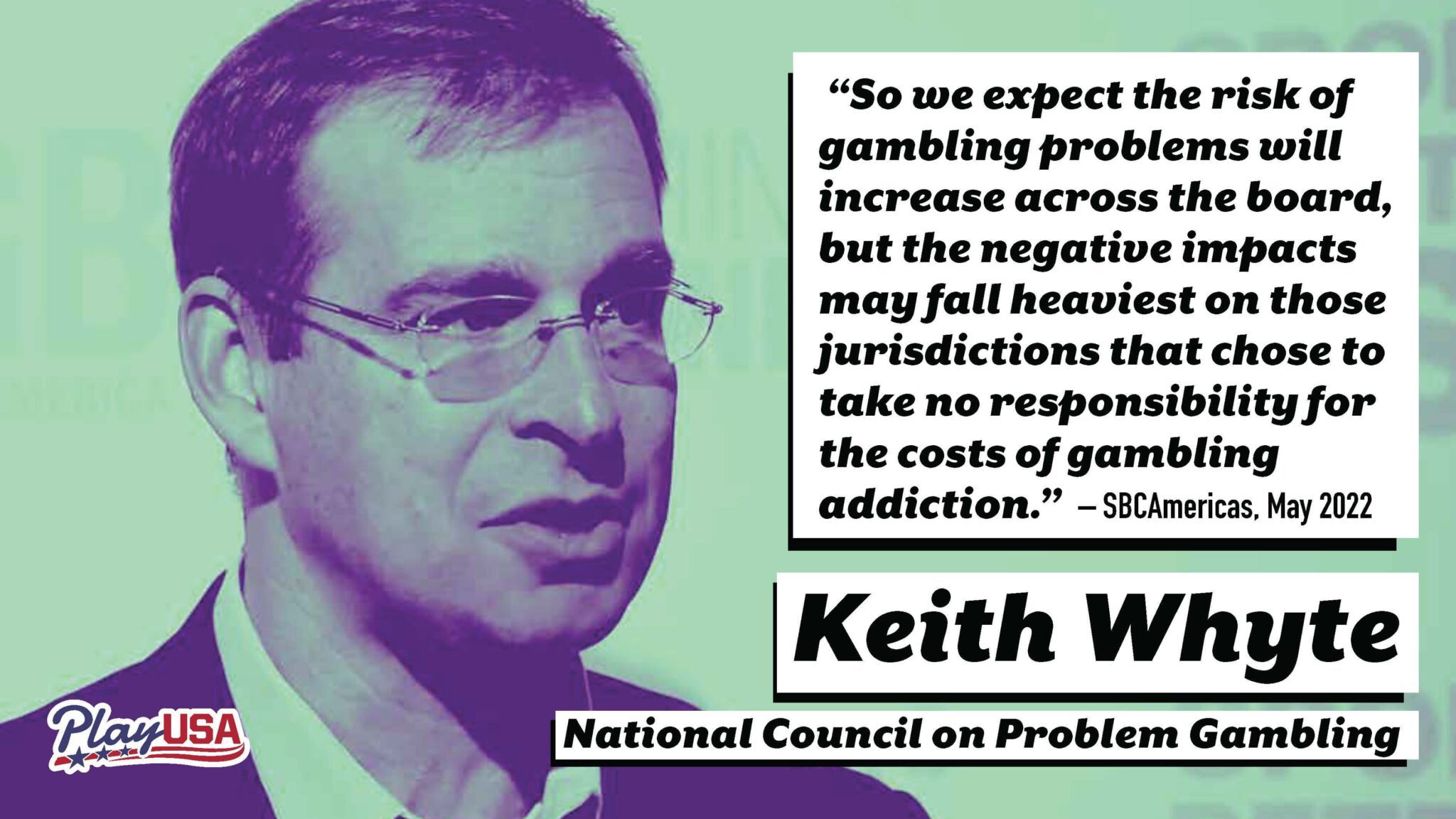It is hard to believe, but it’s been a mere four years since the first legal, regulated online sports bets were placed in the US outside of Nevada. DraftKings launched its New Jersey app in August 2018, and the internet hasn’t been the same since.
Between that event and the 2013 start of legal online poker in Nevada and Delaware, the industry already has moved millions of Americans out of the illegal market shadows and into the comfort of a burgeoning system that protects consumers and ensures game integrity. It’s also poured a lot of money into casino companies and government coffers.
None of this happens, however, by accident. People make it happen – sometimes the least likely, and mostly not household names. PlayUSA presents its first-ever recognition of the Power Players in US online gambling. This is the considered consensus opinion of our editors and writers, along with guidance from colleagues at other gaming-industry sites and industry insiders.
Joseph Addabbo Jr., State Senator, New York
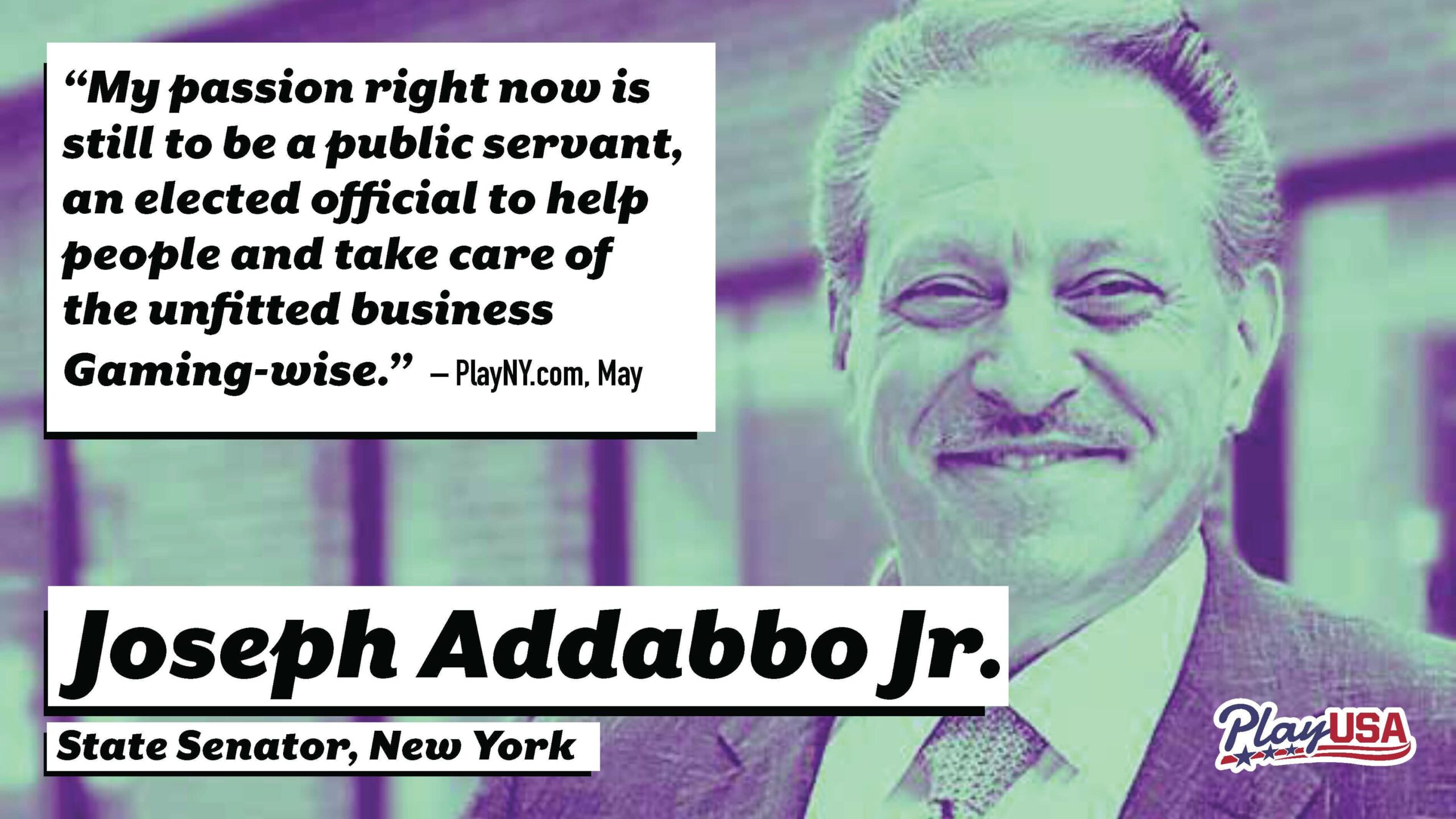
Why him: As chair of the Senate Racing, Gaming and Wagering Committee, the 58-year-old Democrat from Queens will be the reason New York does or doesn’t legalize online casino gaming. He successfully shepherded the onset of legal internet sports betting but wants the Empire State in on the rest of the pie – online casino and poker, too. Addabbo is encouraged by the openness to gambling expansion under Gov. Kathy Hochul, noting Gov. Andrew Cuomo was less receptive. He also has expressed interest in lowering the sports betting tax rate – at 51% one of the highest in the nation – to encourage more competition in the space.
Darryl Barnes, Delegate, Maryland General Assembly
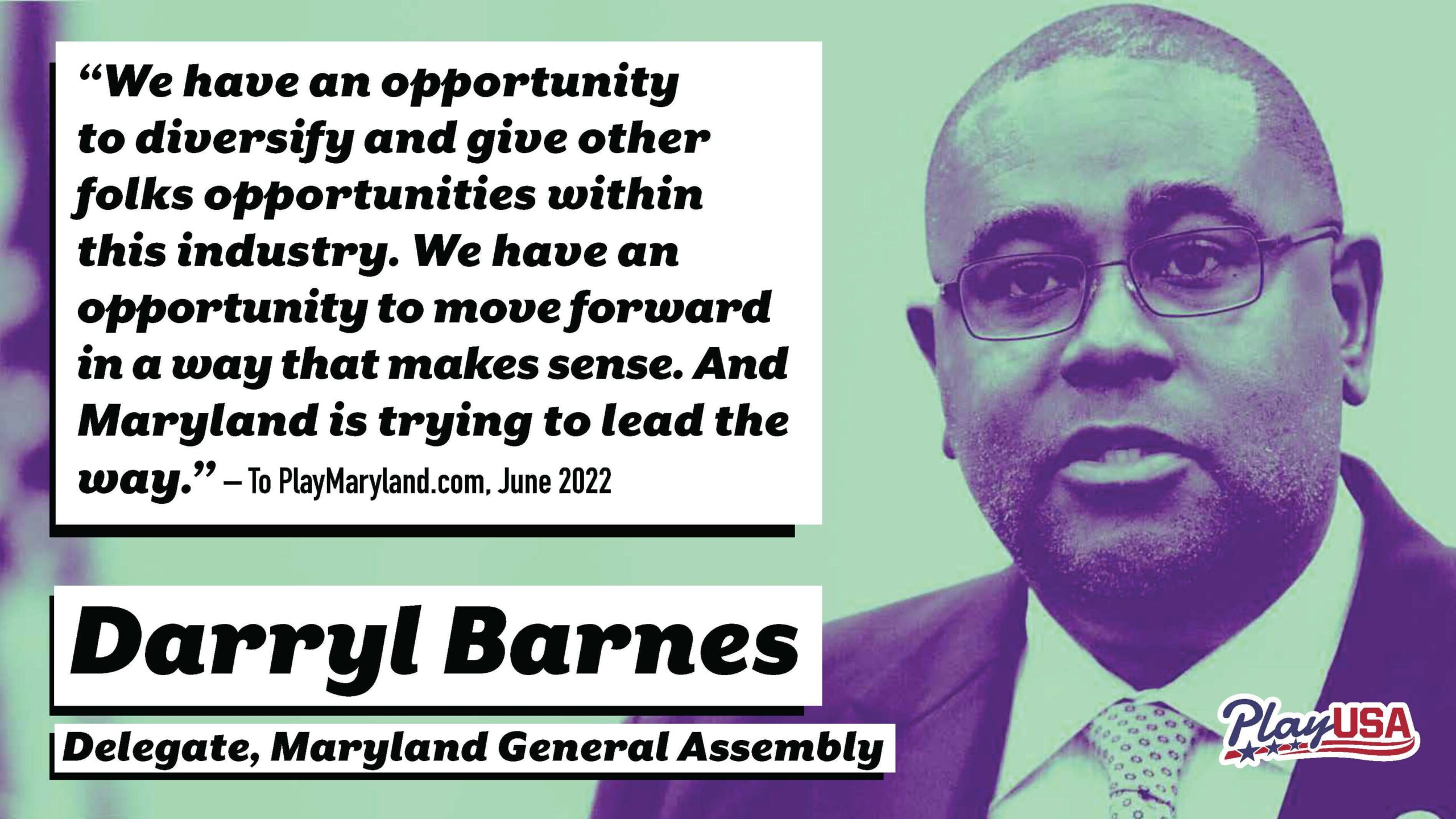
Why him: Many states are giving lip-service to diversity, equity and inclusion as they race to fill government coffers with cash from online gambling options. Not Maryland, thanks largely to Barnes, the powerful chair of the Maryland Assembly’s Legislative Black Caucus. He forced the process to slow down while a disparity study of the industry was undertaken – as opposed to Ohio, where nobody seemed to care the law required the same. In the process, Barnes forced the state and the industry to take note of the fact that ownership and leadership in casino gambling is almost exclusively male and white. (The major exceptions are cases in which major casino companies are forced to pair with Native American tribes or, overseas, with Asian partners.) Barnes took a lot of guff for his insistence that a serious focus on this question is important enough to miss the revenue of most or all of the 2022-23 NFL season and, perhaps, in the end, the delay won’t change anything in the near-term. But, as MGM Resorts Board Member Rose McKinney-James told PlayMaryland.com earlier this year, it may have a long-term impact.
Jacob Claesson, Head of operations North America, Evolution
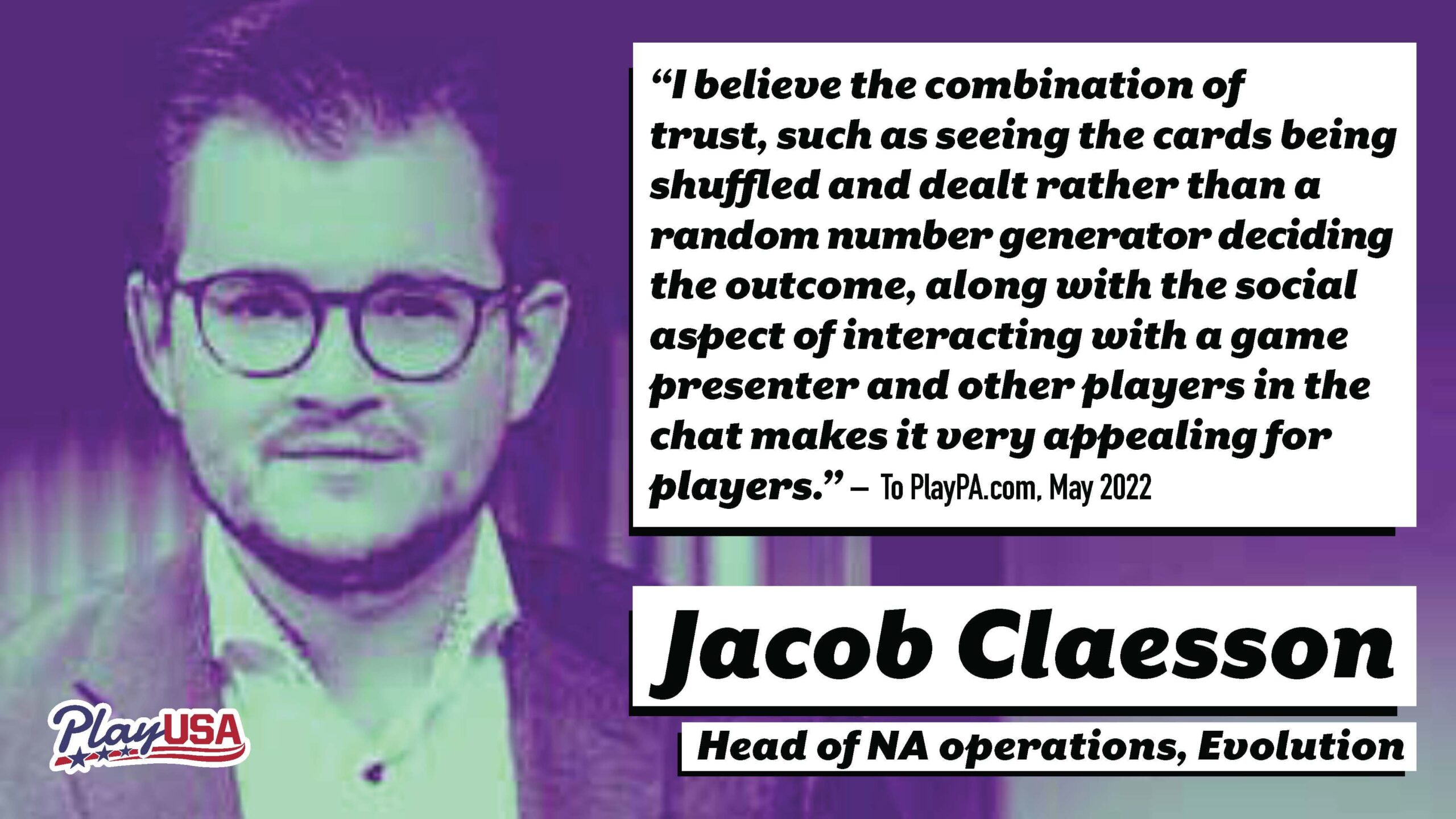
Why him: The move to create studios with live dealers to give online players a real-casino feel has fallen largely on the shoulders of Evolution and, more specifically, on Claesson. The Swedish-born executive spent years in Europe – Latvia, Malta and the Republic of Georgia – perfecting the concept before landing in his Philadelphia home base in October 2021 to do more of the same around the US and Canada. More recently, Claesson has overseen an expansion beyond traditional live table games such as blackjack, baccarat and roulette into live craps in Pennsylvania, with an eye toward New Jersey and Michigan.
Roger Goodell, Commissioner, National Football League
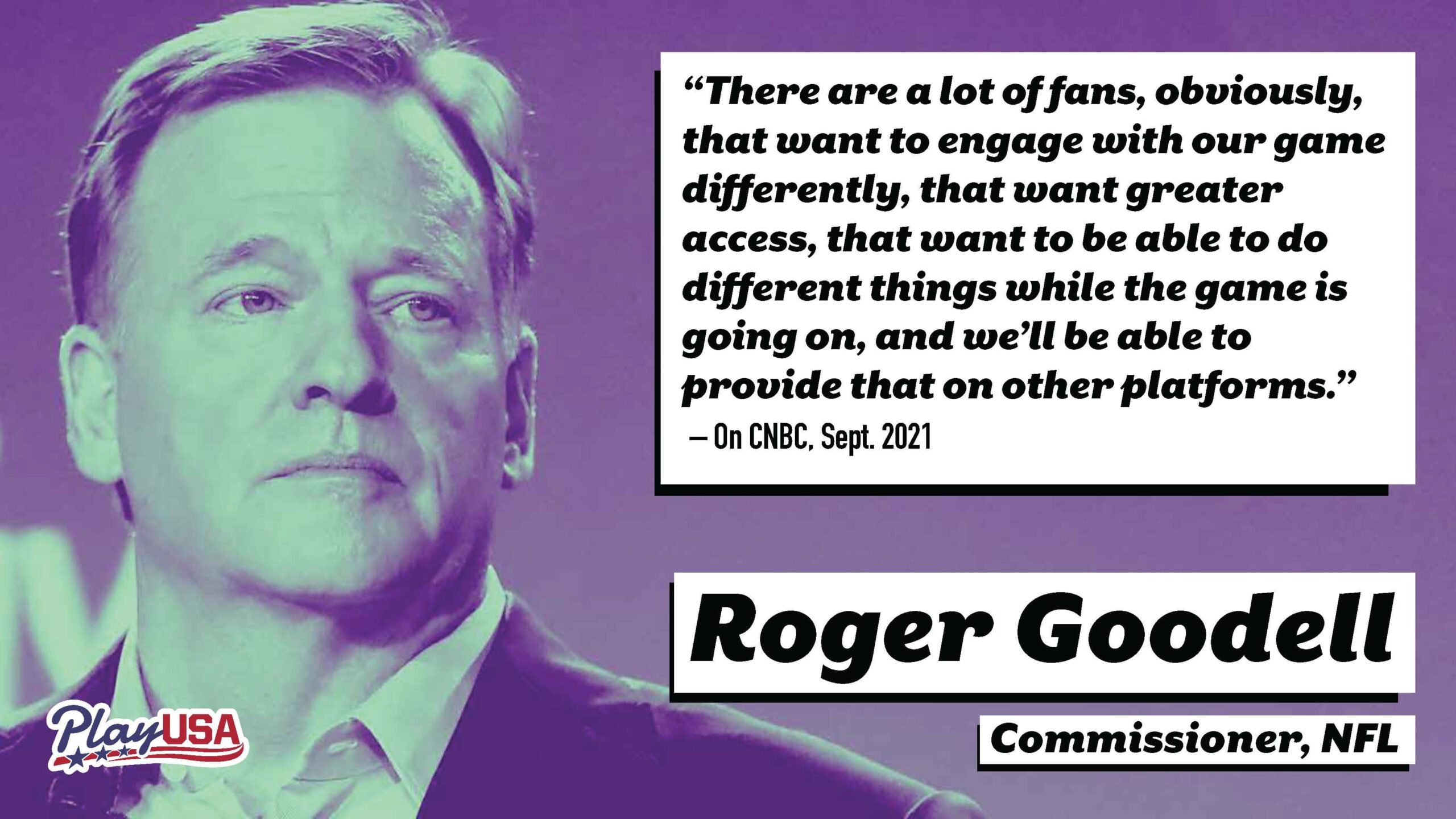
Why him: Up until the US Supreme Court struck down the Professional and Amateur Sports Protection Act and allowed states to legalize sports betting, Goodell was dead-set against it. That was the position he inherited from his predecessors, who went so far as to ban even a glimpse of the Las Vegas Strip in Super Bowl advertising. After PASPA went down, however, Goodell decided if they couldn’t beat ‘em, the NFL totally had to join ‘em. Fast-forward a few years, and NFL franchises have official partnerships, the major national online casino brands are allowed to buy time on any and every televised football game and Goodell now lauds the opportunity to bet during games as “an even more immersive experience” than fantasy football. That’s quite a flip from his 2009 position that any sports gambling represented “an additional threat to the integrity of our league and contrary to the public good.”
Adam Greenblatt, CEO, BetMGM
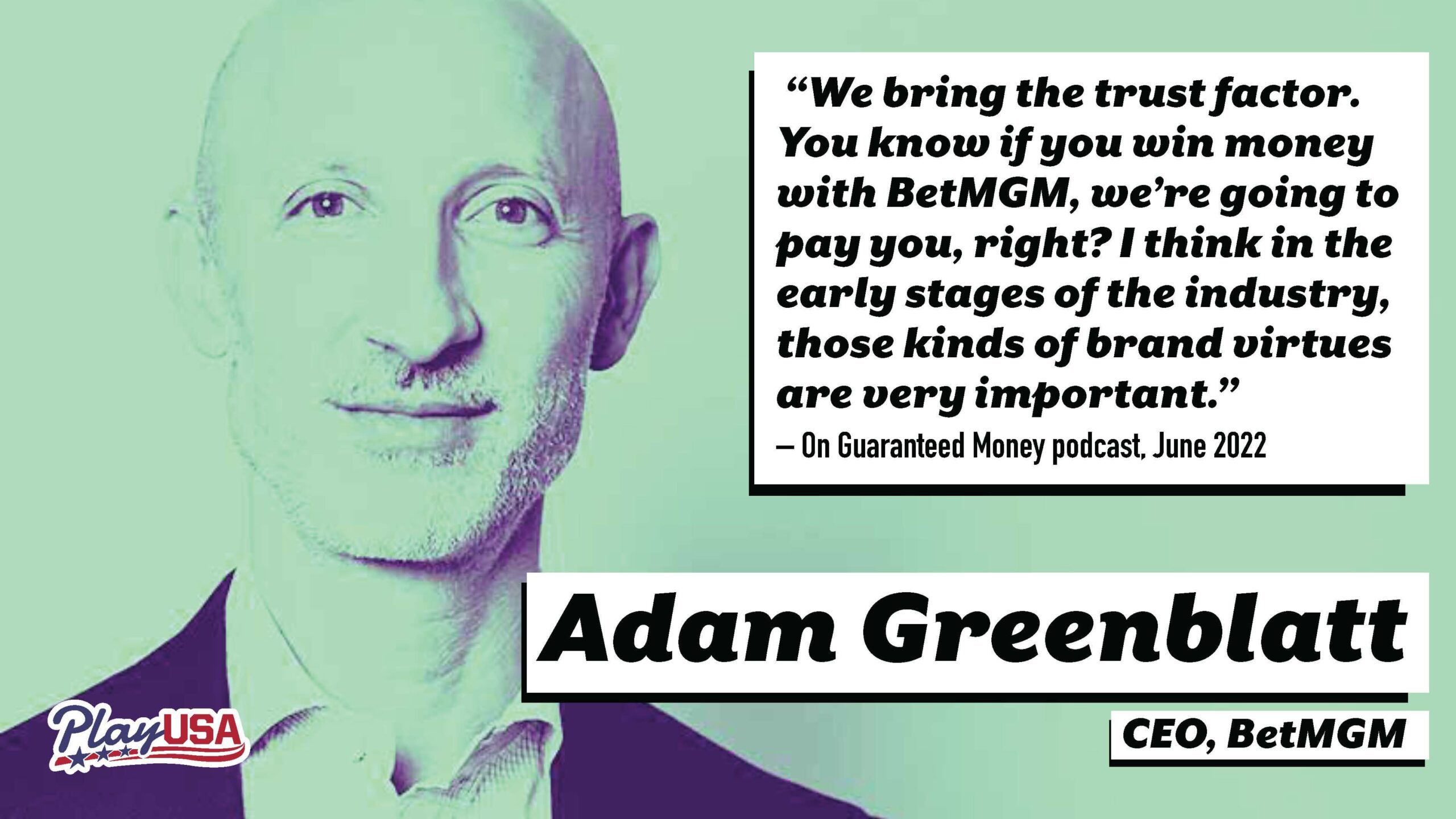
Why him: Few business executives have been as relevant in online gambling as Greenblatt, culminating with his appointment in 2018 to his current gig. Greenblatt, previously director of corporate development and strategy for LadbrokesCoral and Ladbrokes, was tapped to preside over the new entity born of a joint venture between MGM Resorts and Ladbrokes’ parent, GVC Holdings (GVC is now called Entain). Under Greenblatt, BetMGM has gone live in 23 jurisdictions in the US and struck numerous partnership deals with pro sports franchises, leagues and athletes. Greenblatt’s hand at the wheel has been pivotal to how online gambling is developing and will develop for years to come.
Amy Howe, CEO, FanDuel Group
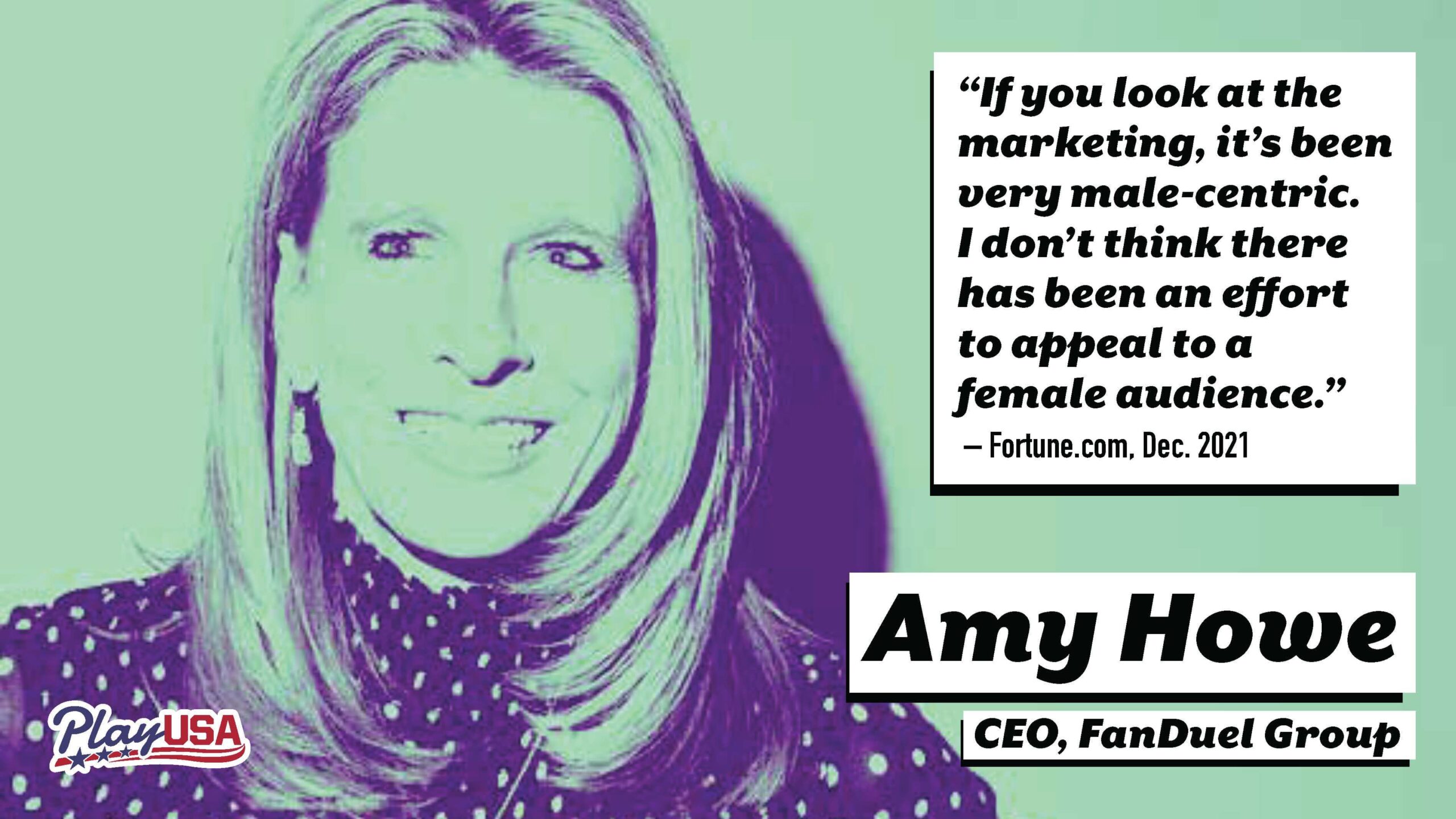
Why her: Howe, who came to the helm of FanDuel in 2021 from her post as president and COO of Ticketmaster, is one of the few women in a major position of power in the casino industry. She leans into that distinction to preach the importance of a more aggressive pursuit of encouraging female sports bettors to get into the action. She’s fond of noting that half of sports fans are women but less than a third of the sports betting population is. Howe’s strategy includes building relationships with management and talent in the WNBA and the Women’s Tennis Association. She forged a partnership with women-led The Gist, where the FanDuel betting odds appear in the site’s four-times-a-week newsletters.
Brandt Iden, Head of Government Affairs, US at Sportradar
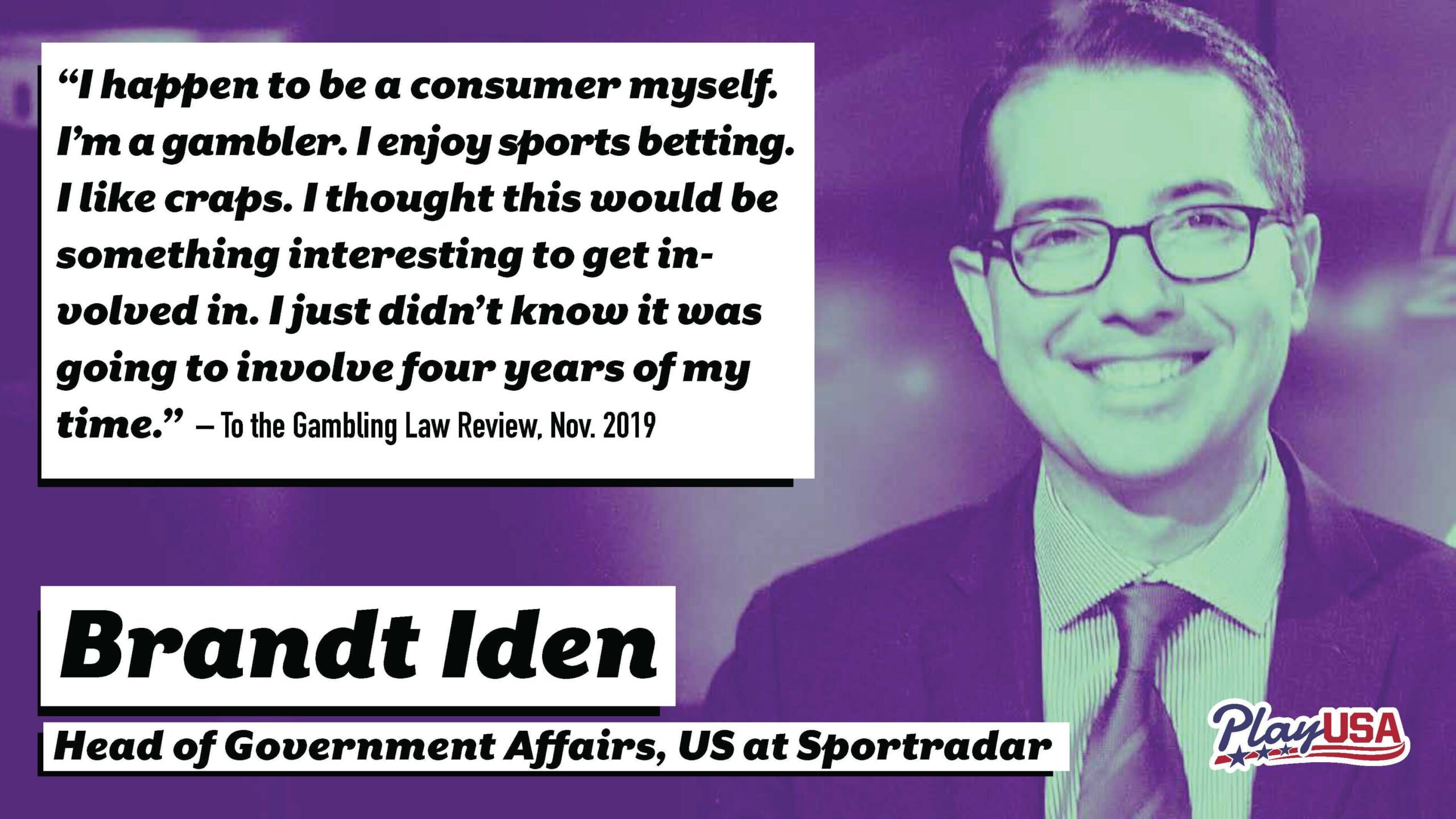
Why him: Iden, now head of US government affairs for the Swiss online sports technology firm Sportradar, almost singlehandedly shoved Michigan into the forefront of the online gambling world. A Republican from Kalamazoo, he started in 2015 what became a four-year push because he believed Michigan gamblers were being exploited by illegal sites and the state was missing out on tax revenue. After shepherding legalization through the GOP-run Legislature, Iden was stunned by Republican Gov. Rick Snyder’s surprise veto in December 2018. Iden went to work the next year, reaching across the aisle to appeal to the new governor, Democrat Gretchen Whitmer, who did sign the law in 2019. A wave of online casinos launched in January 2021, setting the gold standard for regulation and variety of offerings that is now a template for the coming launch in Ohio.
Jeremy Kudon, Partner, Orrick, Herrington & Sutcliffe
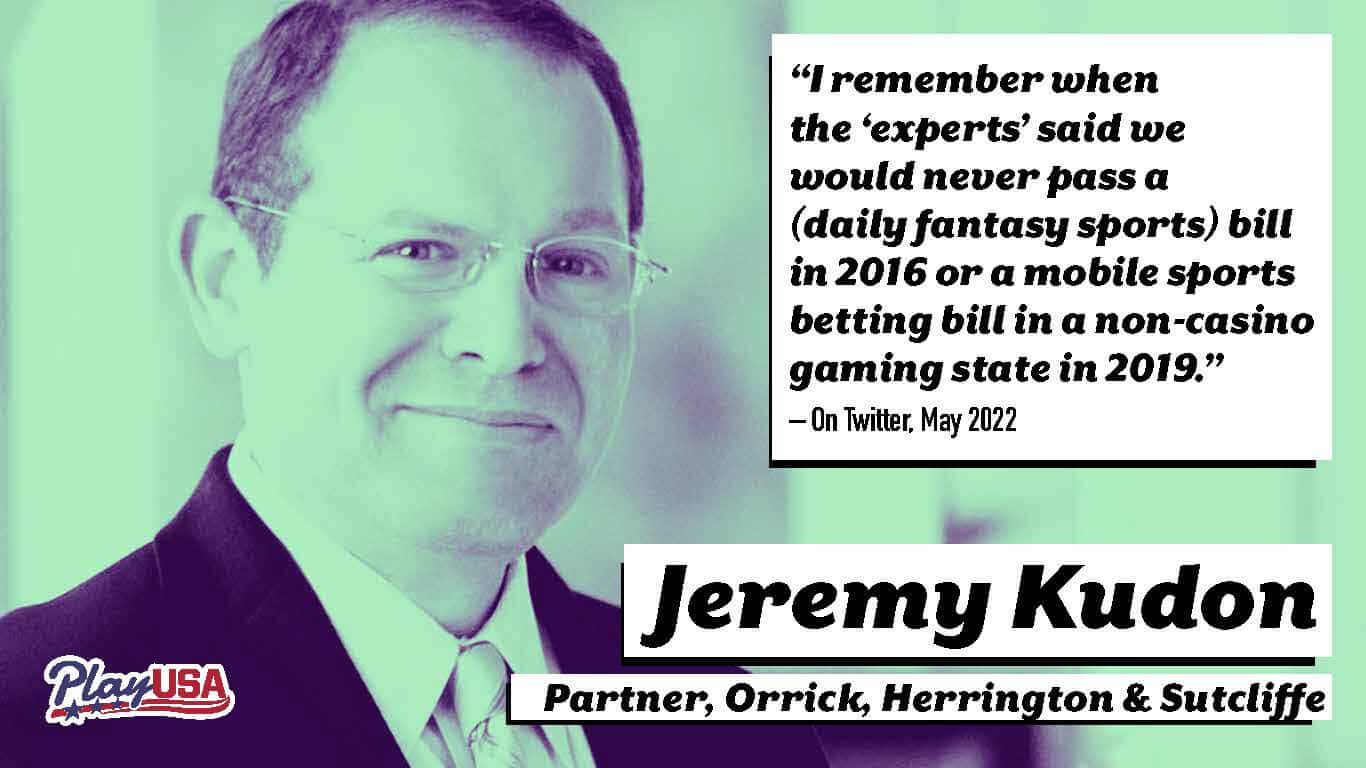
Why him: Kudon is the go-to attorney for the iGaming industry, having made his name in 2016 by working with the New York Legislature on behalf of DraftKings and FanDuel to design the legislation that legalized real-money online fantasy sports contests. Five years later, he conquered Albany again with his arguments for legalizing mobile sports betting. He’s also been pivotal to other states – Arizona and Maryland among them – in guiding legislation that has allowed the sports betting world to flourish. In Arizona, in fact, his team crafted legislation that allows tribal casinos to allow bets on sports, a breakthrough in bringing the nation’s vast tribal casino market into the online and sports betting space.
Mark Locke, Co-founder and CEO, Genius Sports
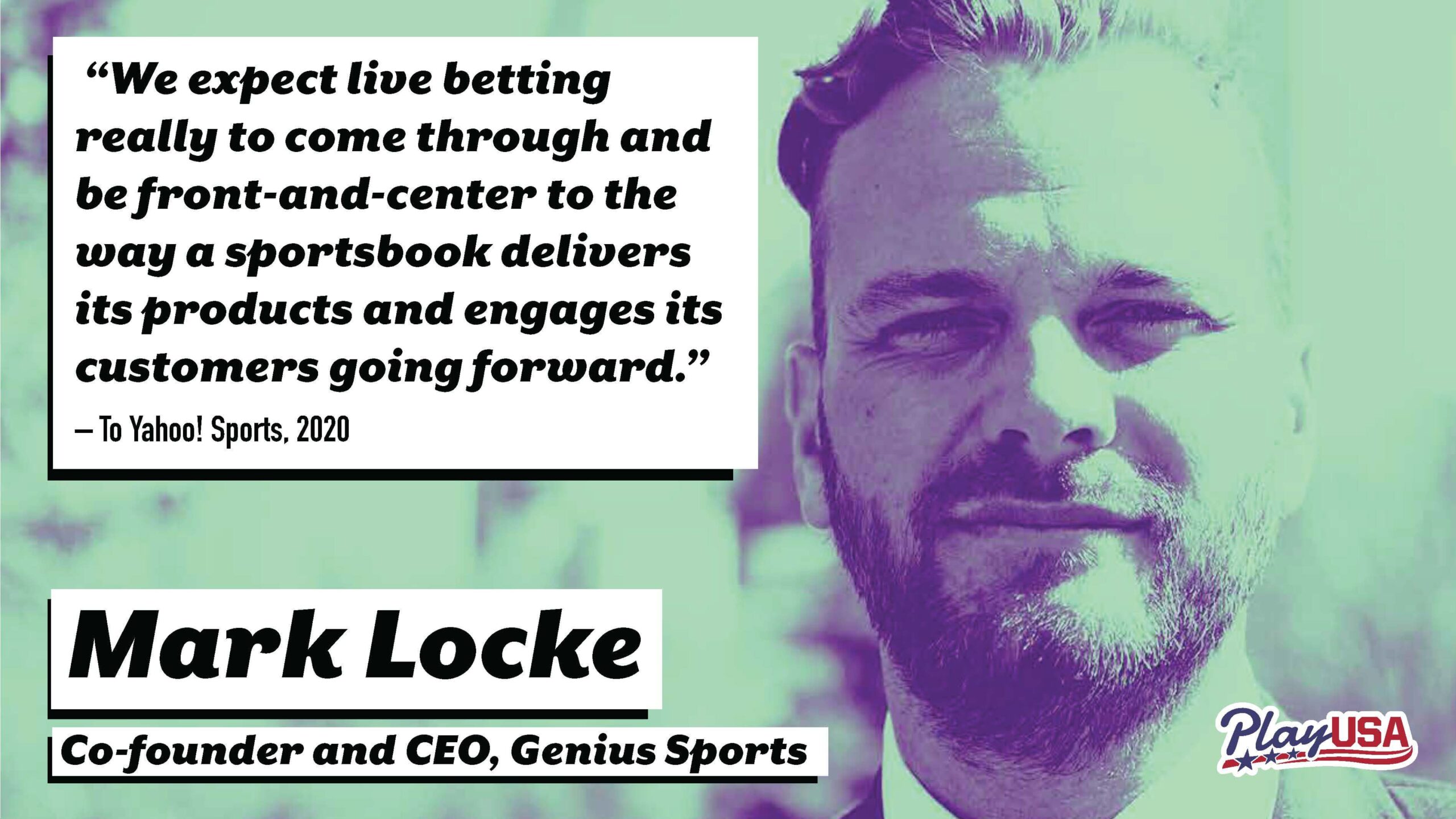
Why him: For the modern era of sports betting, someone had to come up with technology that crunched data with lightning speed to deliver to sportsbooks and media companies. The information flowing from London-based Genius Sports in many ways makes setting odds for in-game wagering possible – and that helps explain the exclusive partnership between Genius and the NFL as the exclusive sports betting data provider that nudged Sportsradar out of that cushy gig. Such deals place Locke and Genius all over the landscape, from the Mid-American Conference’s 24 sports to the Icelandic Football Association.
Pat McAfee, Football analyst
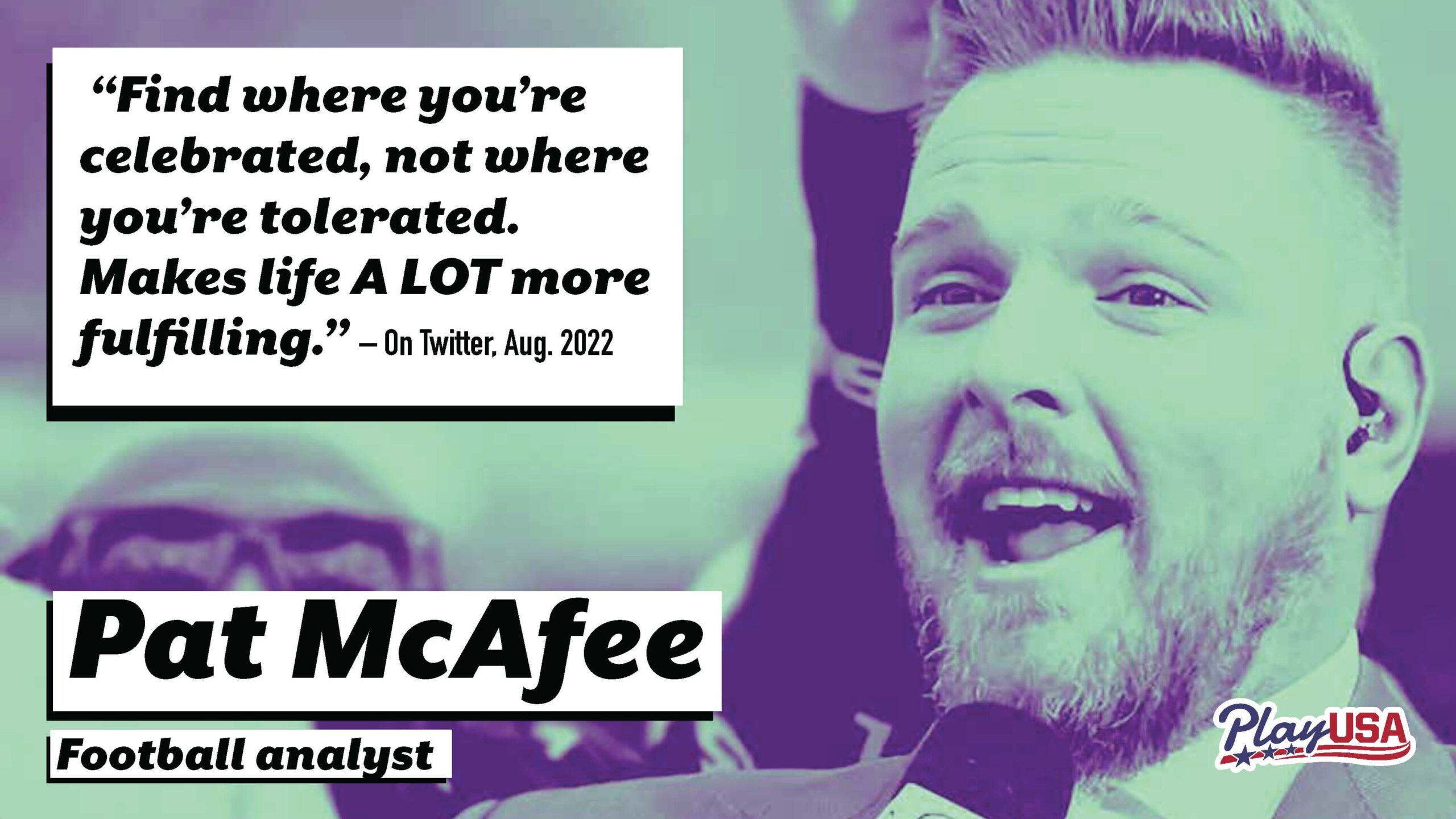
Why him: The retired professional football player has parlayed his insights and personality into the 15-hour-a-week daily “The Pat McAfee Show” that’s so popular, FanDuel inked a $120 million sponsorship deal. The Indiana-based media personality moved his show from Barstool to YouTube, where his channel is nearing 2 million subscribers. He was mocked for retiring as a punter to pursue his dream of building himself as a media brand, but McAfee now is one of the most influential analysts in football. Thousands of viewers and listeners follow his lead on how to bet, and his star is just beginning to rise.
Marcellus Osceola Jr., Chairman, Seminole Tribe of Florida
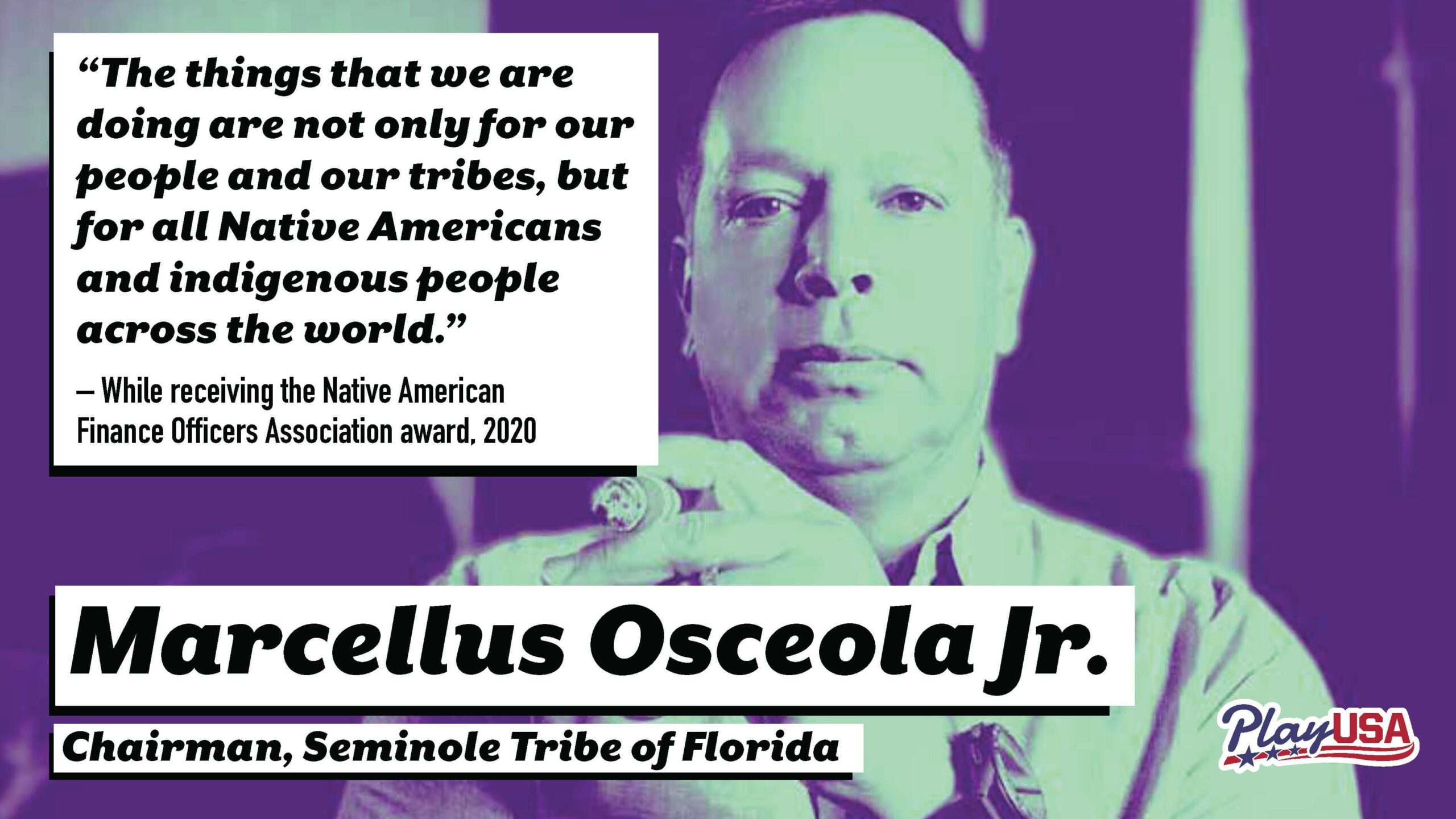
Why him: Everything that happens in the Florida casino universe happens through the Seminoles and, more specifically, because Osceola wants it. That’s how, in April 2021, Osceola struck a deal with Gov. Ron DeSantis to renew the gambling compact between the state and the tribe for another 30 years and add sports betting to the mix – with a caveat that “using a mobile app or other electronic device shall be deemed to be exclusively conducted by the tribe.” That action, which continues to give the Seminoles a monopoly on the Sunshine State’s casino industry, is in limbo after a federal judge blocked its implementation on grounds that allowing the Seminoles to conduct gambling operations outside of tribal lands runs afoul of federal law. Yet in a rare bipartisan move that can be explained only by the importance to both sides of satisfying Osceola, the Biden administration backed DeSantis’ efforts to reverse that ruling.
Dave Portnoy, Founder, Barstool Sports
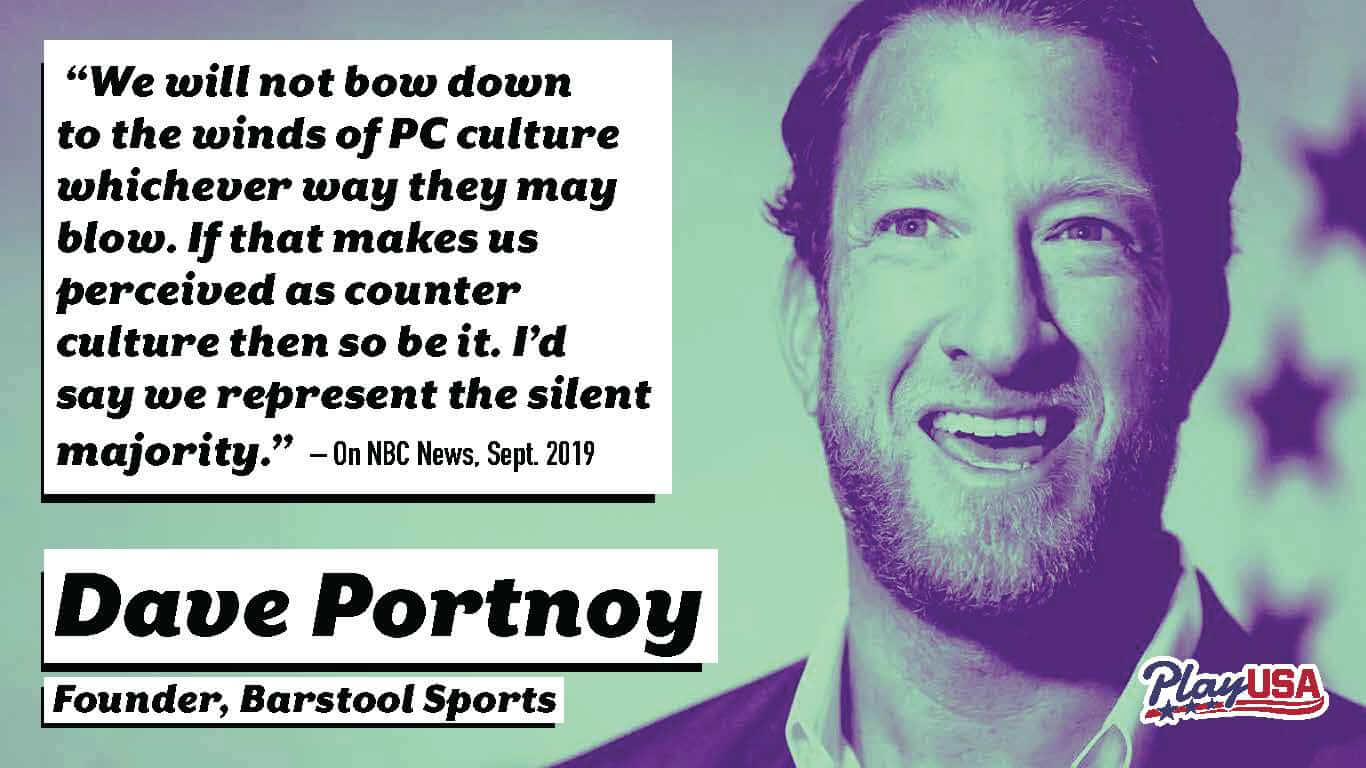
Why him: People love him or hate him, but nobody can ignore him. In the process of building his personal brand, he’s helped make mainstream the world of online sports betting. Portnoy launched Barstool as a free sports newspaper loaded with fantasy sports projections that he handed out on Boston subway platforms in 2003. By 2020, he built an online sports journalism brand so popular that Penn National Gaming spent $163 million for a 36% stake so it could brand its mobile casino apps. By early 2023, Penn Entertainment (as it is now known) is expected to have acquired the rest of Barstool for a total cost of $550 million over three years.
David Rebuck, Director, New Jersey Division of Gaming Enforcement
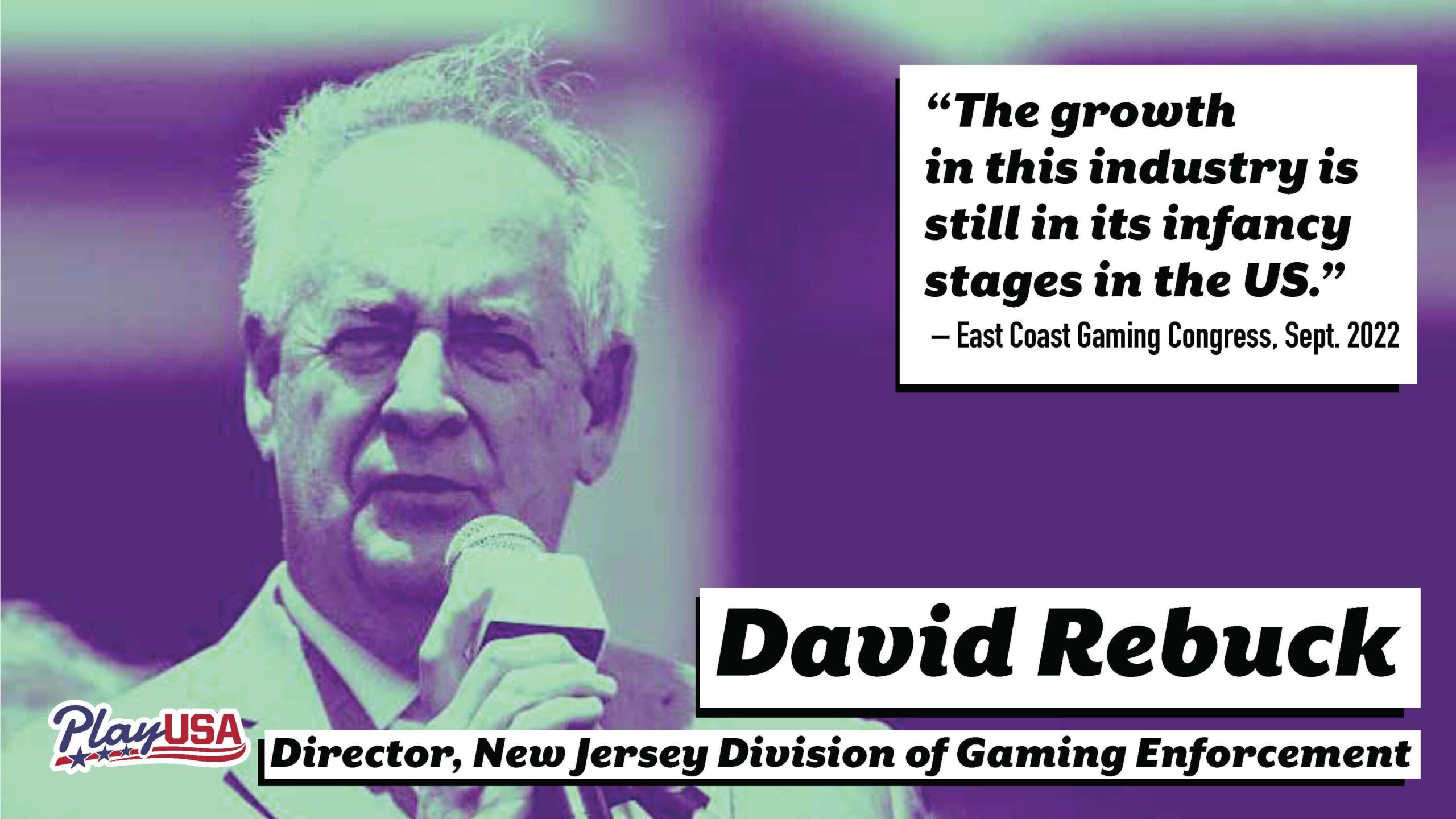
Why him: Rebuck, who served as deputy attorney general for New Jersey for 23 years before Gov. Chris Christie made him the top gambling regulator in 2011, was the driving force behind New Jersey’s decision to challenge the Professional and Amateur Sports Protection Act, or PASPA, the 1992 federal law that outlawed sports betting except in Nevada. After Garden State voters approved a constitutional amendment permitting sports gambling in 2011, the Legislature set forth a legal framework that was quickly shut down by lawsuits from the NCAA, NBA, NFL, NHL and Major League Baseball. Rebuck and his legal team didn’t back down. They went all the way to the US Supreme Court and, in 2018, the highest court voided PASPA as a violation of a state’s rights under the 10th Amendment. All the while, Rebuck ushered in a legal online casino and poker industry with the launches of seven casinos and six poker rooms in November 2013. It was pretty wonky – technology wasn’t as stable as it is now – and moving money in and out was a headache because of skittish US-based banks and credit card companies. Nonetheless, Rebuck has presided over a pioneering regulatory environment that has shown other states the way in.
Jason Robins, Paul Liberman and Matt Kalish, Founders, DraftKings
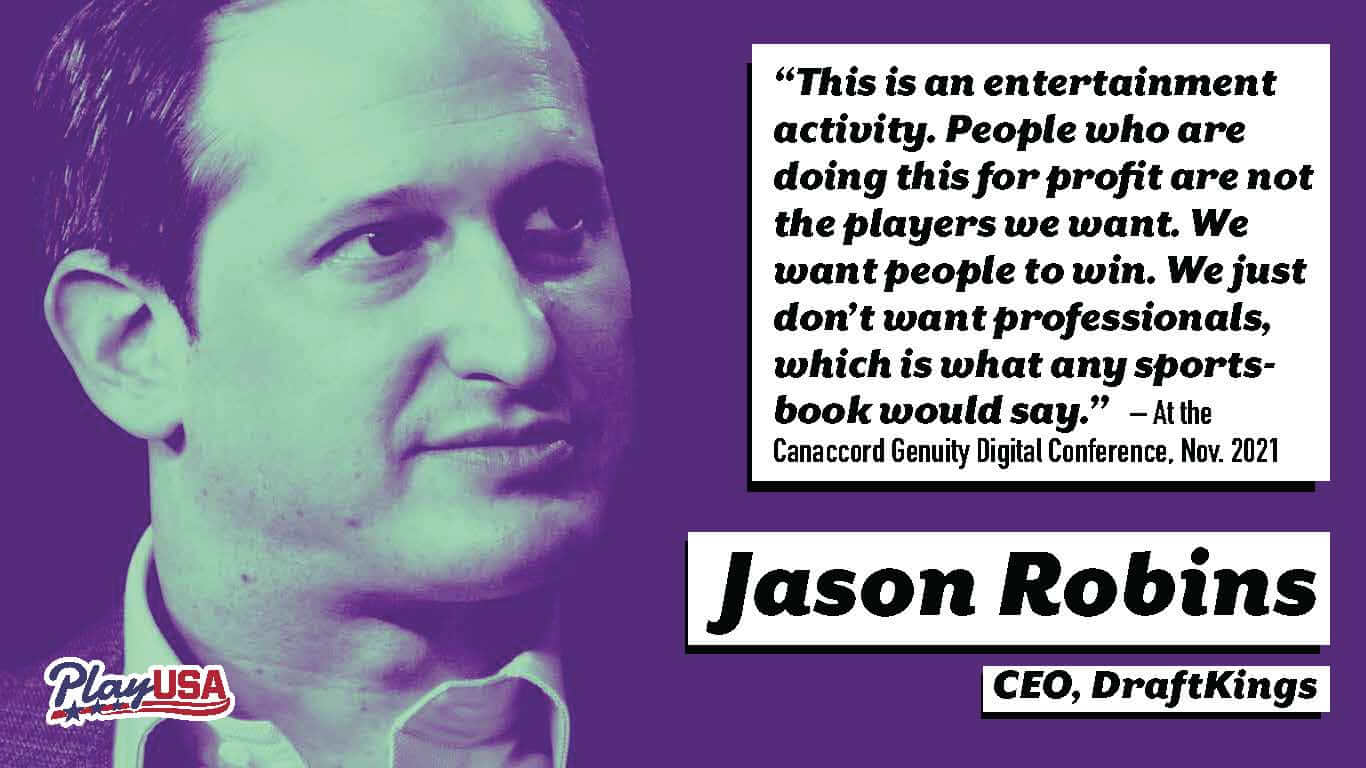
Why them: If there was a gateway to online sports betting, it was the rise of DraftKings as a daily fantasy sports contest that has converted millions of loyal players into bettors. The trio from Boston, who met when they worked at Vistaprint, launched DraftKings at Liberman’s house in 2011 to near instant success. By 2015, they received hundreds of millions in venture capital, eclipsed 1 million registered users and landed their first gambling license in the United Kingdom. That began a bold pivot into the online sports betting and casino space, which hit high gear in 2018, when they were the first to offer a real-money app in New Jersey after the US Supreme Court decriminalized wagering on sports. As of September 2022, the publicly traded company had a valuation of $6.72 billion – and that’s down considerably in large part because of the stock market’s doldrums.
Michael Rubin, CEO, Fanatics
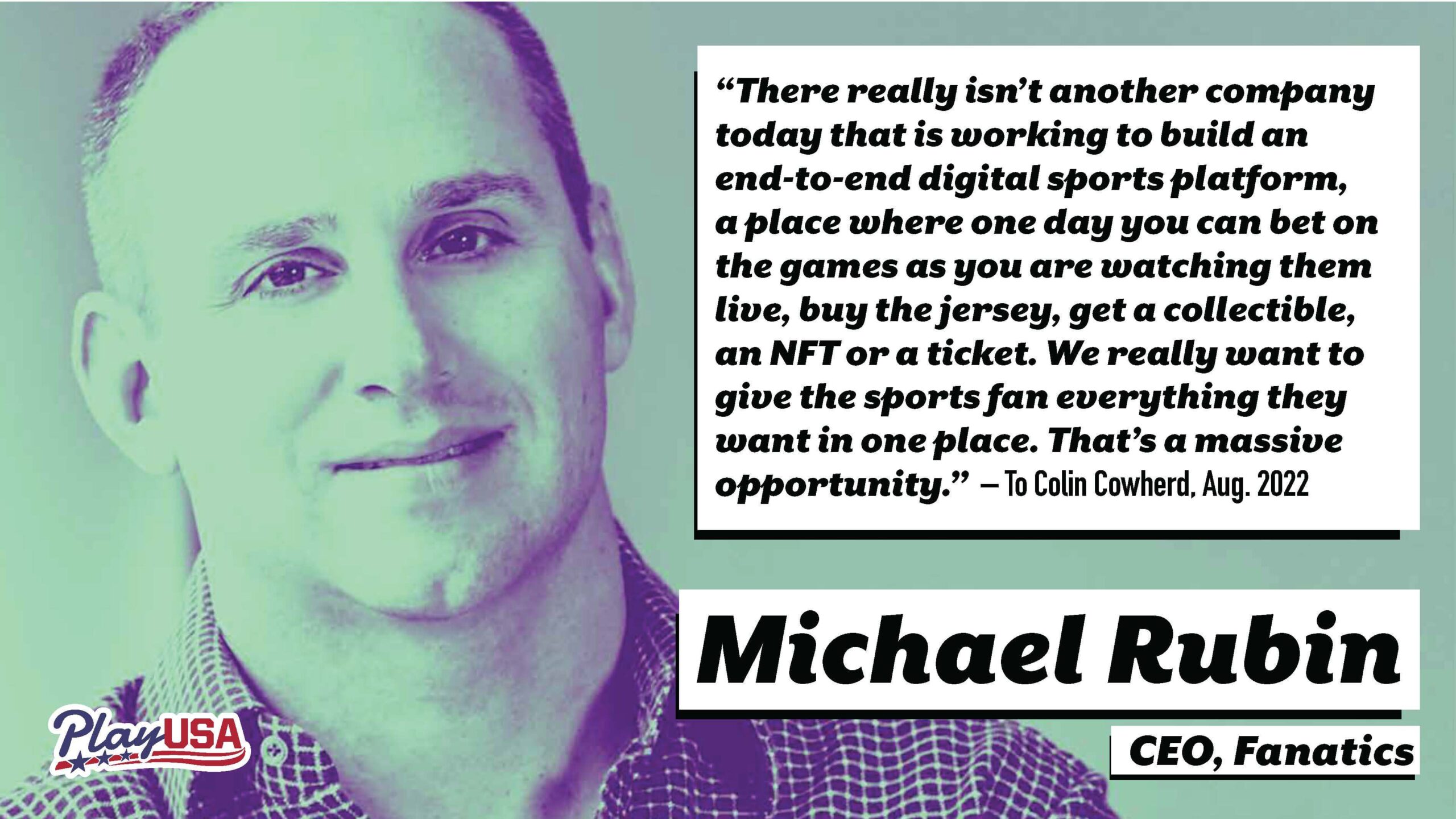
Why him: After building his company into a worldwide leader in sports apparel on the backs of licensing deals with hundreds of team and university franchises, Rubin has begun a pivot into the online casino world. Fanatics has moved to open BetFanatics sportsbook apps in Maryland, Pennsylvania, Ohio, and New York, among other states. While the business is already saturated, Fanatics has a not-so-secret weapon: its mammoth database of customers who have bought its sports swag. It’s not a big leap to see BetFanatics having insights about potential players that could result in, say, someone who buys loads of Michigan merchandise getting a special parlay offer on the Wolverines to entice them to check out the app. Heck, they could even start non-money games with merchandise prizes. The marketing possibilities are endless, and Rubin is in the catbird’s seat.
Anna Sainsbury, Founder and CEO, GeoComply
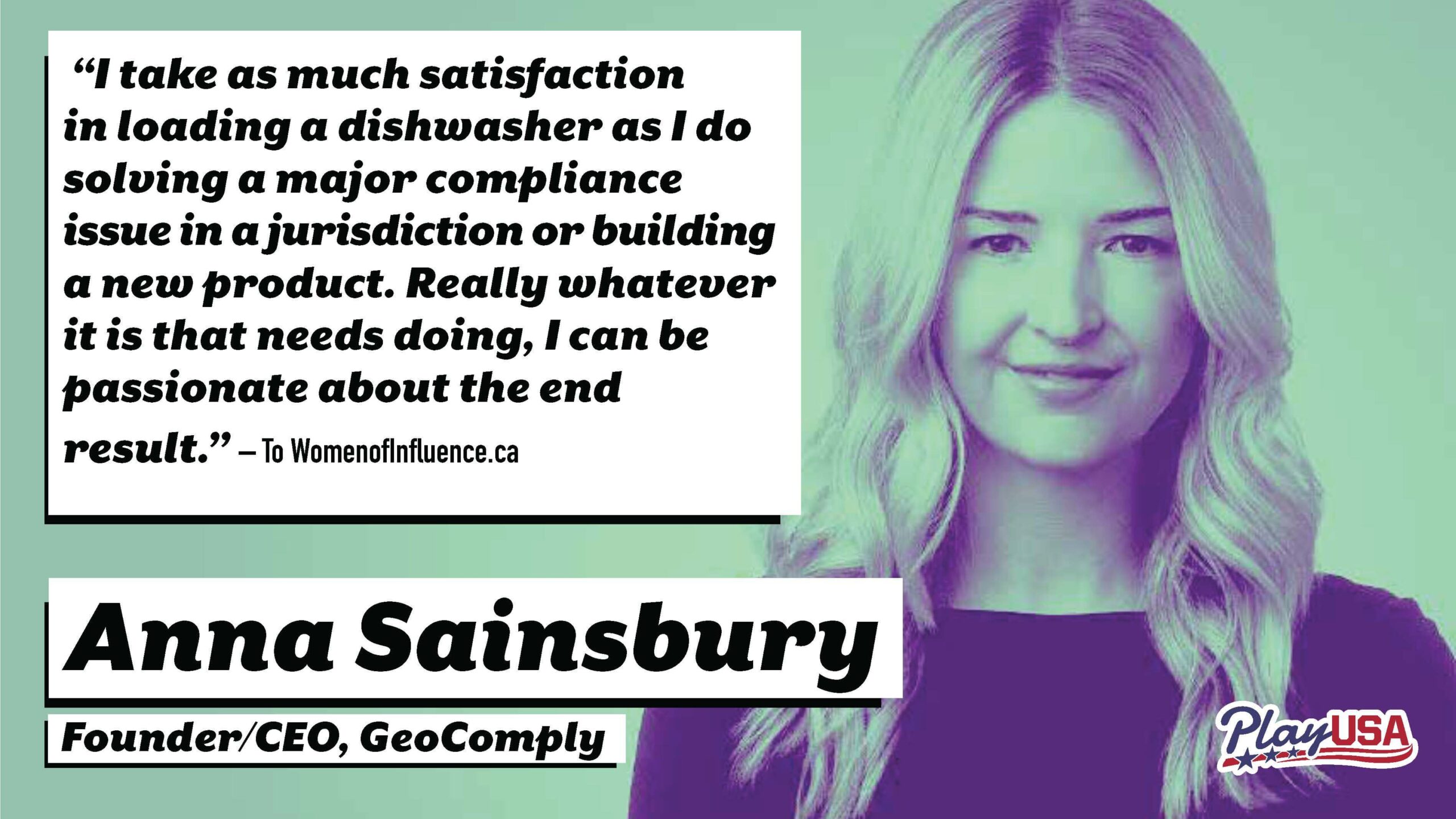
Why her: In 2011, Sainsbury and her husband David Briggs, answered one of the most important questions about how legal, regulated internet gambling could function logistically and respect the boundaries and laws of neighboring jurisdictions. The technology put forth by GeoComply now is the industry standard for accuracy and effectiveness in geolocating players, a requirement in countries as vast and diverse as the US and Canada, where she hails. The company plodded along with moderate success until the Supreme Court’s rejection of PASPA in 2018 unleashed the flood of states legalizing sports betting. Now a firm that started with four employees and focused on the gambling industry – MGM Resorts, FanDuel and DraftKings are all clients – has burgeoned to more than 750 and expanded to entertainment firms such as Amazon Prime Video and the BBC. In all, more than 500 million devices have GeoComply’s software loaded worldwide. Still, Sainsbury’s heart remains in the casino realm; she’s on the board of the American Gaming Association and started a nonprofit subsidiary, Conscious Gaming, which offers technology tools to help players who have problems to set limits and boundaries for themselves. She’s also a member of a private network, Chief, for women business executives to connect and support one another.
Rebecca Satterfield, iGaming manager, Delaware State Lottery; manager, Multi-State Internet Gaming Association
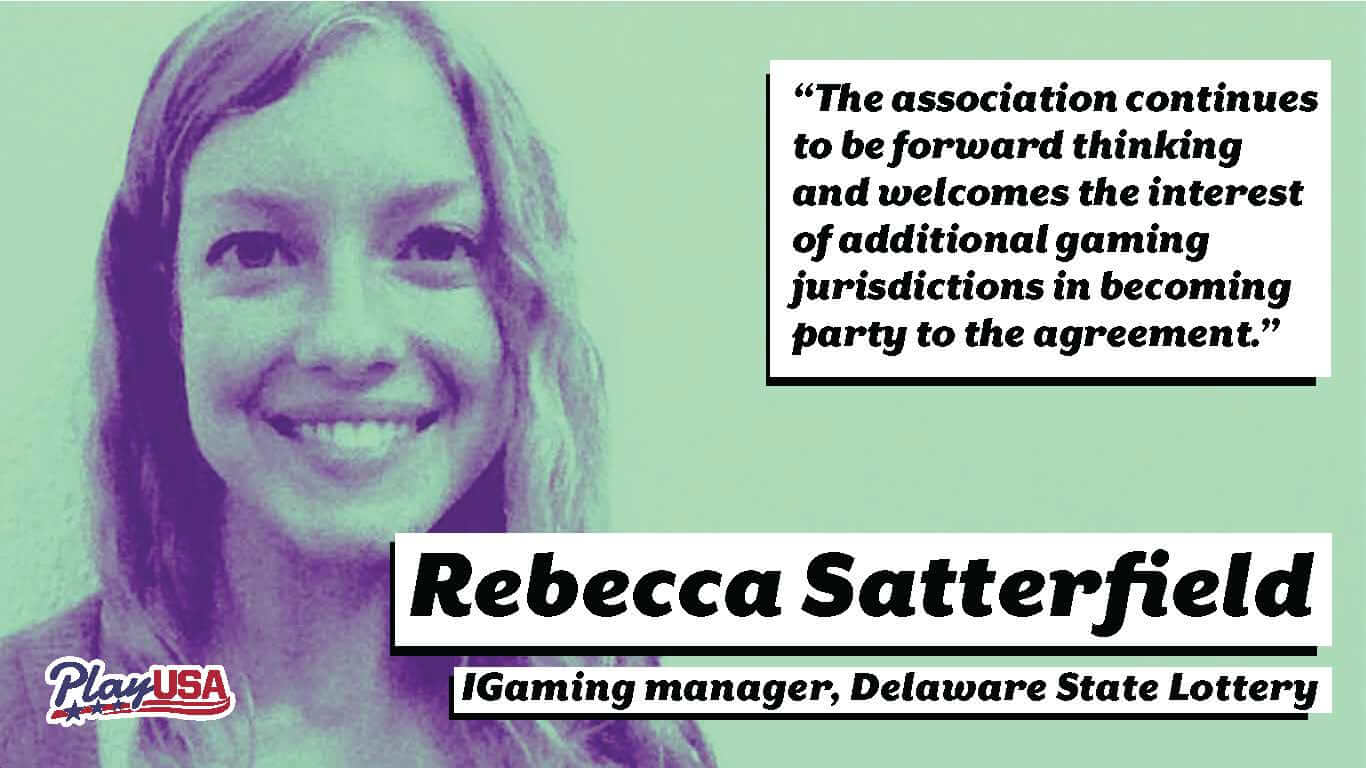
Why her: Online poker has a population problem, and Satterfield is the best-positioned person to fix that. The problem is that when states legalize it, they restrict it to people physically inside the state’s borders. That narrows the universe of opponents and leaves internet poker sites without a critical mass for solid action for most of the day and night. Satterfield, the iGaming manager for the Delaware Lottery, has been key in trying to solve the conundrum slowly but surely. To date, the compact allows the 13 million people living in Nevada, Delaware and New Jersey to play with one another. Satterfield announced in April that Michigan, population 10 million, would be joining, although the state has yet to make that a reality. There are three other states in MSIGA’s sights – Pennsylvania, West Virginia and Connecticut – which, with Michigan, would add up to more than 41 million people within the legal poker sphere.
Adam Silver, Commissioner, NBA
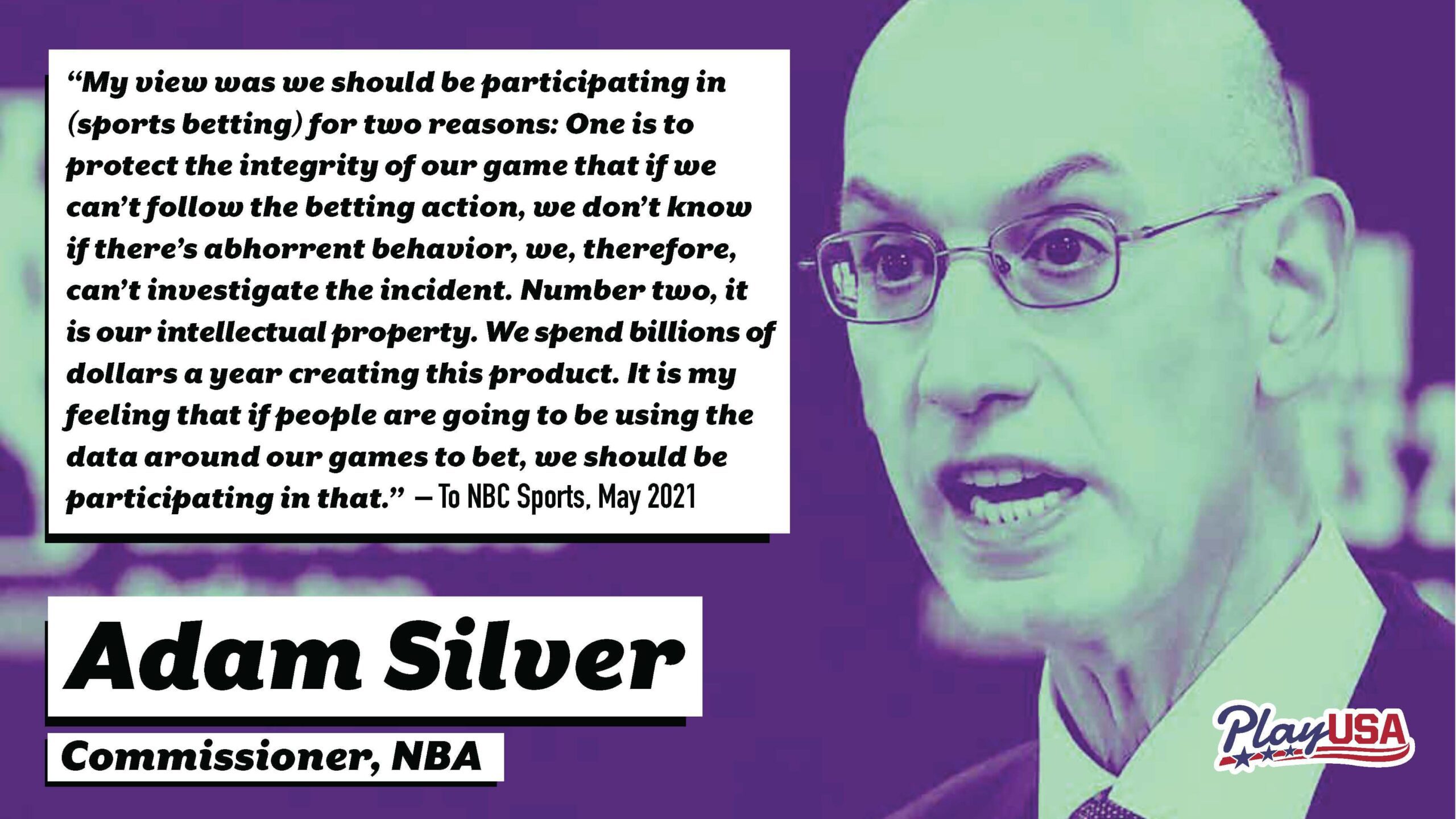
Why him: Unlike his NFL counterpart Roger Goodell, Silver didn’t spend the bulk of his career hammering away at the unspeakable evils and inevitable corruptions of sports betting on pro sports. Rather, in 2014, when he took over as NBA commissioner from David Stern – who did do that, by the way – Silver wrote an op-ed in The New York Times, arguing that the blanket prohibition on legalized, regulated sports betting was actually hurting fans, bettors and the leagues. It wasn’t a long piece – only 437 words – but it opened a critical conversation that set the stage for the four years since the US Supreme Court struck down PASPA. He had his reasons, to be sure, including the exclusive deal announced that same week between the NBA and FanDuel’s daily fantasy sports operations.
Keith Whyte, Executive director, National Council on Problem Gambling
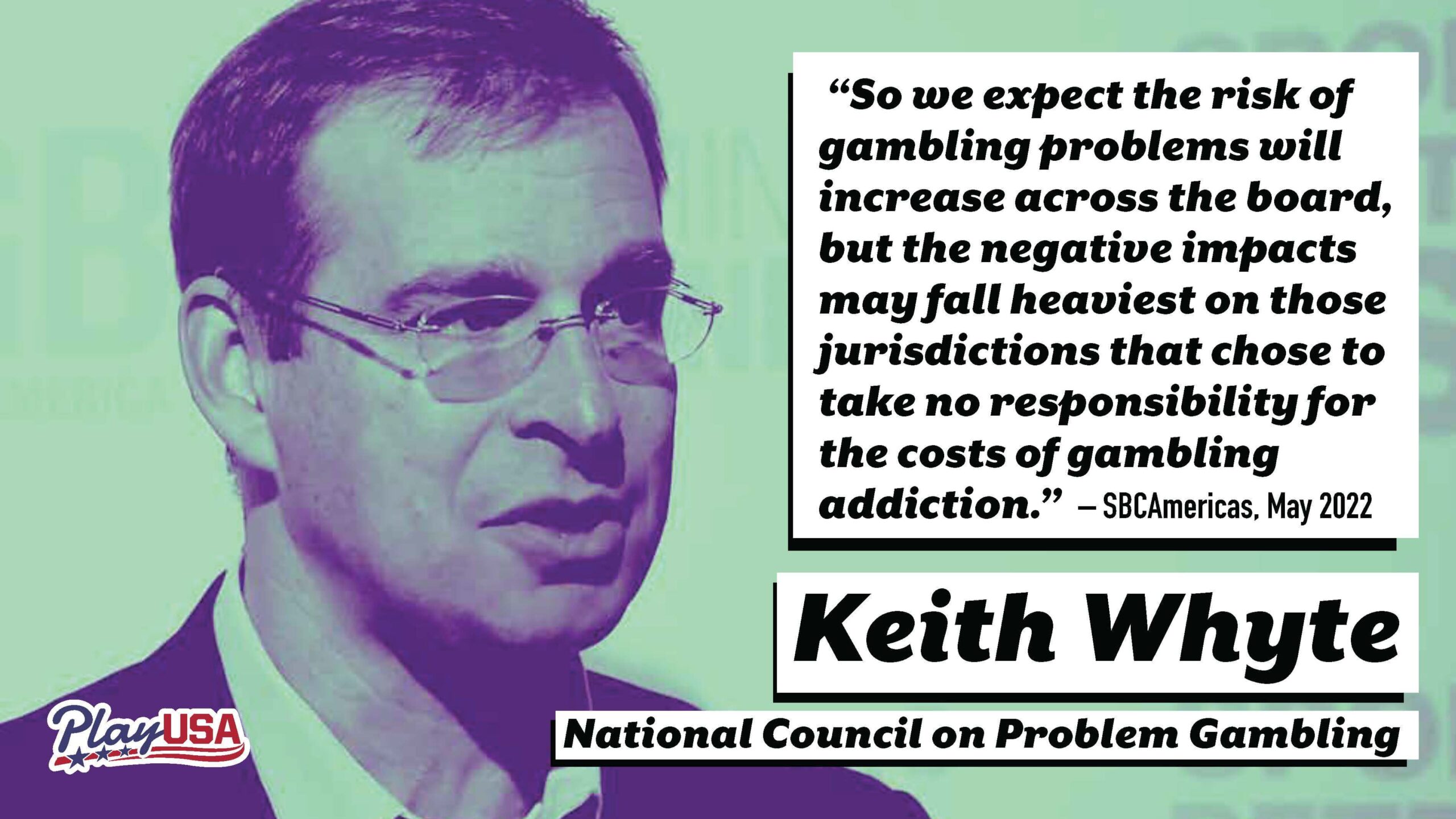
Why him: It is impossible to use any legal, regulated iGaming product in the US without being surrounded by links to resources to address gambling addiction. This is in large part the handiwork of Whyte, who took over the NCPG in 1998, when smartphones weren’t even a glint in most people’s eyes. He didn’t invent the concept of toll-free numbers or text-and-chat options to get help – most of that is embedded in the laws in states such as New Jersey and Florida – but he has been the most-visible figure in politics and media advocating for resources and requirements to address the issue. Whyte has testified four times before Congress on gambling-related topics. His latest effort, a deal with the Council on Problem Gambling of New Jersey to turn the Garden State affiliate’s 800-GAMBLER into the de facto national problem gambling hotline, is the latest way Whyte’s NCPG is making its power felt.
